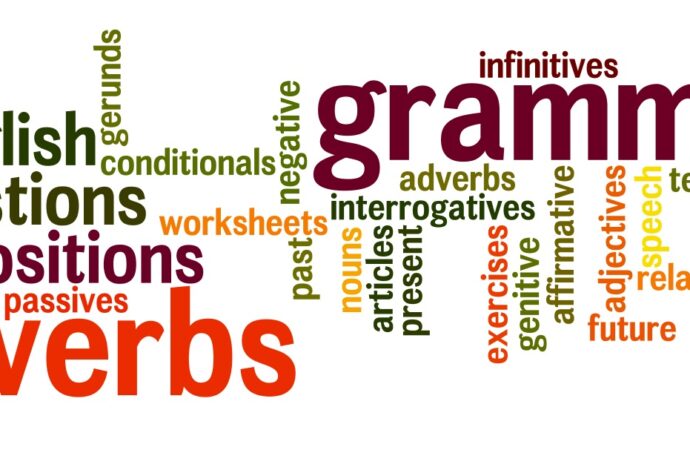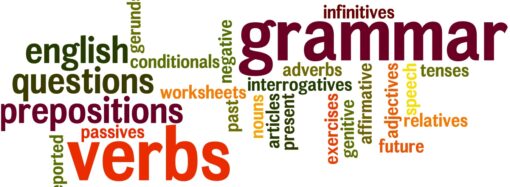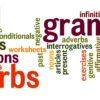No matter what type of work you do, good grammar is relevant for all organizations, and it can make a big difference in your career path.
There are a lot of bad grammar posts in the world. These days, anyone with a blog and a bunch of pet peeves can crank out a clickbait listicle of supposed grammar errors. There’s just one problem— these articles are often full of mistakes of one sort or another themselves. Once you’ve read a few, you start noticing some patterns.
Let’s face it; grammar is a small circle in a larger circle; creativity is the larger circle. Grammar lies at the rear of the editing string. But experience has it that readers will approach your work with warped judgment. Of course, your grammar shouldn’t be a test of your writing abilities but it typically is.
Below are twenty common mistakes that you will see regularly in both the online works and hard copies. Let’s hope that you can get a better understanding of these mistakes and not repeat them in the long run.
Whom and Who
Grammar enthusiasts from dissertation writing service affirm that “Whom” and “who” phrase often screws things up. “Whom” is an object pronoun. It’s used when the pronoun is the object of the sentence. So you should combine it with the likes of “her”, “them”, “him” and many others. On the other hand, “who” is a subject pronoun. It’s used when the pronoun is the subject of the sentence. It works better with “she”, “it”, “he” and many others.
Lie and Lay
“Lay” and “Lie” is the father of all grammatical errors. “Lay” means to position something carefully on a flat surface/position. On the other hand, “Lie” means to rest in a flat/horizontal position.
May and Might
“May” is used to express probability or possibility. On the other hand, “Might” is used to express something far more probable or uncertain. It’s also the past tense of “May.”
Whether and If
Many essay writers or even most writers assume that “if” and “whether” are synonymous. The truth is that they are not. “If” has to do with a condition that comes with little or no alternative. On the other hand, “whether” comes with a condition with two or more alternatives.
Farther and Further
“Further” implies an abstract length or distance. On the other hand, “Farther” implies a concrete length or distance that you can’t estimate.
Fewer and Less
“Fewer” is for things that you can estimate or valuate. On the other hand, “Less” is used to express speculative quantities.
Examples:
- The paper company has fewer than twenty employees.
- The paper company is less successful now that we have only twenty employees.
Literally
“Literally” means precisely or exactly. In some cases, people use it to overemphasize an idea or situation.
However, it’s not appropriate for formal settings.
Which and That
“That” is used for definitions. On the other hand, “which” is used for descriptions. It will help to determine whether the words that come with “that/which” are crucial to their meanings to avoid grammatical errors.
Envy and Jealousy
“Envy” implies coveting someone else’s good attributes. However, “Jealousy” is far more extreme. It is a fear of rivalry. It often leads to unpleasant situations.
Since and Because
“Because” refers to cause. However, “Since” comes to time.
Examples:
- Since I’ve quitted clubbing, I’ve married and had three children.
- Because I quit clubbing, I no longer wake up in my vomit.
Its and It’s
“Its” is a possessive pronoun and it is used to show that someone is the owner of something. On the other hand, “it’s” is an abridgment of “it has” or “it is.”
Between and Among
Let’s face it: The word “among” refers to things that are not explicitly separated because they are part of a group. However, the word “between” refers to two or more things that are explicitly separated.
For instance, you choose between a green beret and a black beret, but you choose among all berets.
Dangling Modifiers
Dangling modifiers occur when a descriptive word does not align well with the accompanying noun. Let’s look at an example below:
- After declining for weeks, Mirabel employed a new strategy to boost sales.
It will help to work around the sentence structure to solve this problem.
- Mirabel employed a new strategy to boost sales after it declined for weeks.
Perfect, right?
Affect and Effect
The word “affect” means to influence or impact. On the other hand, the phrase “effect” is the result of the influence.
Passive Voice
The passive voice occurs the subject becomes the object in a sentence.
Example: The pizza was eaten by Ella.
Example of Active Voice: Ella ate the pizza.
In this context, Ella is the subject and the pizza is the object. Nothing changes that.
It will help to use passive voice sparingly since it causes wordiness.
Nauseous and Nauseated
The word “nauseous” typically refers to a sickening feeling. But it doesn’t have to revolve around that. The phrase “nauseous” could also mean that you can generate nausea in other people.
Example:
- That cat is nauseous.
Anxious
It will help not to use the word “anxious” if you are not frightened by someone else. Instead, you should say that “you are eager.” Anxiety implies looming dread.
Moot
Contrary to common misusage, the phrase “moot” doesn’t mean that something is unnecessary. It means that it is a topic open to discussion or debate.
I and Me
The phrase “Me” acts as an object to a verb. On the other hand, the word “I” serves as a subject in a sentence.
Examples:
- I went to the library yesterday.
- My mom scolded me for spilling the coffee.
Emigrate and Immigrate
The phrase “immigrate” means to arrive in another country to live there. On the other hand, the word “emigrate” means that you want to leave your country.
Conclusion
Like it or not, words, spelling, and punctuation can leave a lasting impression on others. But even the most educated people often unknowingly make these common flubs. English, like many other languages, has its own set of tricky rules and intricacies. But with a little bit of practice and help from guides like this one, you can become a grammar master.
There are so many grammar mistakes made today, The Elements of Style is on its fourth edition. While most business writers don’t abide by those rules, most PR professionals do.
Having a copy of both (and referring to them) and asking an editor for help (even if it’s informal like Sam does), you’ll never have to worry about the grammar police.



















7 Comments
mesotheraphy
June 12, 2024, 11:17 amThese products work synergistically with the HydraFacial process, providing your skin with an extra boost of nourishment. The use of premium products ensures that you receive a top-tier skincare experience that delivers visible and lasting results.
REPLYOscarBrooker
June 12, 2024, 11:37 pmThis local knowledge helps to avoid delays and ensures that your belongings are transported safely and quickly. Whether you’re moving within Cumming or to a neighboring city, local movers can leverage their familiarity with the area to provide a seamless moving experience.
REPLYLake Lure Movers
June 12, 2024, 11:59 pmWhen choosing a moving company, it’s essential to consider factors such as reputation, experience, and services offered. A reputable moving company will have positive reviews and testimonials from satisfied customers. Experience is crucial because seasoned movers are more likely to handle items with care and solve any potential issues that may arise during the move. Additionally, it’s important to look for a company that offers a comprehensive range of services to meet your specific needs, whether you’re moving a small apartment or a large office.
REPLYOscarBrooker
June 13, 2024, 12:14 amCar wraps are designed to be durable and long-lasting, making them an excellent investment for vehicle owners in Las Vegas. High-quality wraps can last between five to seven years with proper care. The longevity of a wrap depends on factors such as exposure to elements, driving conditions, and maintenance routines. Regular washing and avoiding prolonged exposure to harsh sunlight can help extend the life of a car wrap, keeping it looking vibrant and intact.
REPLYwholesale sign suppliers
June 13, 2024, 12:27 amThe role of sign vinyl in branding cannot be overstated. Consistent and high-quality signage helps reinforce brand identity and increases recognition. Custom vinyl graphics and lettering enable businesses to showcase their logos, colors, and messages effectively. This visual consistency builds trust and familiarity among customers, enhancing the overall brand experience and contributing to long-term business success.
REPLY